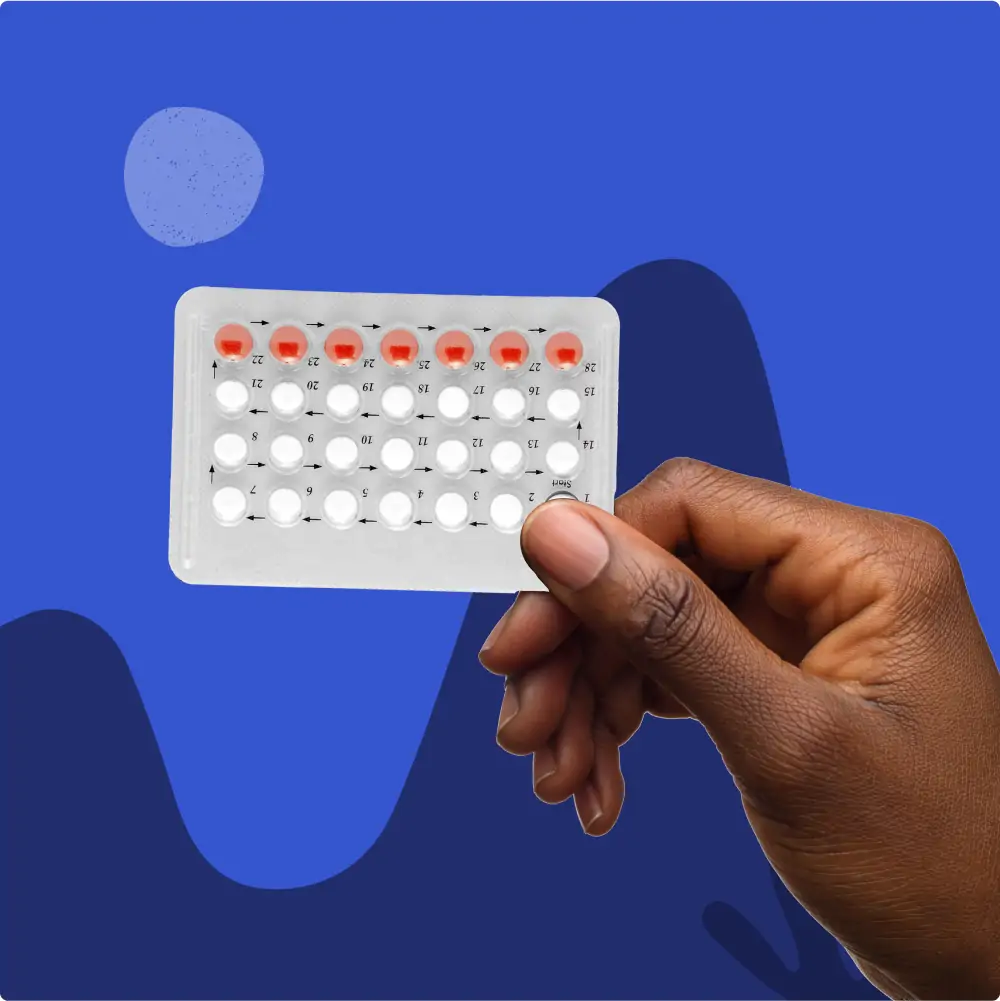
5.0 - 2177 Reviews
In Stock
Equivalent Generic Brands: Velivet
Caziant is super easy to use. Simply take one pill every day, at the same time each day. Many women find that taking Caziant before bedtime or just after their evening meal helps reduce nausea and other side effects. After taking 21 days of white active pills, you’ll switch to seven peach-colored ones. These are inactive pills with no hormones that are there to get you in the habit of taking your pill every day.
Caziant uses a blend of two hormones combined in different dosages along the pack. Each pack contains: Desogestrel 0.1mg, ethinyl estradiol 25mcg (7 tabs); desogestrel 0.125mg, ethinyl estradiol 25mcg (7 tabs); desogestrel 0.15mg, ethinyl estradiol 25mcg (7 tabs), and 7 inactive pills with no hormones that are there to keep you in the habit of taking your pill every day.
The risks are very low, but some women have experienced unwanted side effects when taking Caziant. Minor ones include breast tenderness, headaches, nausea, swollen feet or ankles, and slightly elevated blood pressure or blood sugar levels. Positive side effects are also a possibility, too — reduced acne, fewer mood swings, and other perks are fairly common.
The chances of serious side effects are extremely unlikely, but some cases have been documented. Symptoms include heart disease, blood clotting, shortness of breath, migraines, vision problems, slurred speech, confusion, and fainting. Those who wear contacts or are nearsighted may notice vision problems as well.
These may sound scary, but remember — they’re very rare.
Buy NowFREE with insurance, $28/Pack without (generic equivalent)
FREE Delivery & Goodies
Online prescription (skip the Dr. office visit and pharmacy lines)
Caziant is a combination oral contraceptive pill (cOCP, birth control medication, birth control pills). It prevents pregnancy by preventing the release of an egg (ovulation), and thickening the cervical mucus, blocking sperm from getting into the uterus and getting to the egg.
Caziant is a triphasic birth control pill. Our CEO and Co-Founder, Dr. Sophia Yen generally does not recommend triphasics because life is better on monophasics. Watch our video on Triphasics vs. monophasics here.
If you have high blood pressure or take blood pressure medications, this medication is NOT for you. Instead, Pandia Health Medical group’s doctors recommend progestin-only pill (POPs), IUD with hormone (Mirena, Liletta, Kyleena, Skyla), implant (nexplanon), the birth control shot (depo-provera), or condoms and spermicide.
Some women may experience weight gain when taking Caziant and other birth control pills. While there’s a chance that the hormones can give you the munchies, it’s mostly water retention (and not actual fat).
One of our Patient Care Advisors or licensed physicians will always review the medications and supplements you’re currently taking before prescribing Caziant. Certain drugs (recreational, over-the-counter, or prescription) can interact with Caziant and make it less effective at preventing pregnancy. Drugs that may interact with Cazian include HIV drugs, anti-seizure drugs, antibiotics, and even herbal supplements like St. John’s wort.
Women who have high blood pressure or take medications to control blood pressure should not take Cazian. Our Pandia Health medical team recommends other options including progestin-only pill (POPs), IUDs with hormone (Mirena, Liletta, Kyleena, Skyla), copper IUDs, implants (nexplanon), the birth control shot (depo-provera), or condoms and spermicide.
If you have certain health conditions like chronic kidney disease, liver disease, or Addison’s disease, you shouldn’t use Caziant, or its equivalents.
Hormone-based birth control like Caziant might not be right for you depending on your medical history. If you have a history of cancer, heart disease, diabetes, high blood pressure, or other medical conditions, let one of our Patient Care Advisors know. We’ll help you select a good alternative.
You might be allergic to an ingredient in Caziant if you experience symptoms like dizziness, itchiness, or a skin rash. It’s extremely unlikely, but serious allergic reactions may occur. If you experience trouble breathing or swelling of the lips and tongue, call 911 immediately.
It’s easy to get Caziant at just about any pharmacy near you with a doctor’s prescription. Concerned about your privacy? Our doctor-founded, doctor-led team at Pandia Health is happy to connect you with a licensed physician who can help you get Velivet or any other birth control you need, discreetly and conveniently.
If you don’t have insurance, don’t worry! Pandia Health has a range of payment options.
It’s not true that Caziant causes infertility. If you’re taking Caziant and want to have a baby, talk to your doctor and then stop taking the medication. Normal fertility should return within one or two menstrual cycles after your last pill. Dr. Yen explains more about birth control and infertility in this video. Watch to learn more!

We're here to make women's lives easier by providing a one-stop shop for recurring medications. Pandia Health brings convenient expert telemedicine care and medication delivery to you from the comfort of your home or wherever you may be. We specialize in women's health to provide affordable, convenient, and confidential access to telehealth and pharmacy services.
Get Started- Kennedy
“Amazing!! Cara has always taken care of me and responds quickly. She makes sure that I get my prescriptions right on time whenever I need them. Very impressive”
- Christina
"They are very quick to respond and help with anything that may come up. I feel like I have my own personal doctors right on hand. I highly recommend them."
- Nicole
“Great Company for Birth Control! I get 3 months supply and dont have to physically make a dr. appt/in person visits. I am a nurse so im extremely busy and Pandia Health helps me with my busy lifestyle! Azul was very helpful also!"
- Brittany
“It has never been easier to get the birth control I need and also ask for help on the best one! I always get a reply and answer quickly it's fast and easy I will never use any other way to get my birth control! Plus the site always works it's not constantly changing it's amazing!"
- Jane
“Pandia is affordable, always makes sure I get my pills on time, and when my health insurance changed the doctors helped change my prescription to make sure I was still getting coverage for my medication.”
- Joselyn
“I've been having issues with previous birth control that wasn't working well with me and I almost gave up. The doctors at Pandia were able to help me find a birth control that worked for me which I didn't think was possible!! I didn't realize how many factors there were to consider before choosing a certain bc. Now I'm not experiencing any side effects!”
- Holly
"AMAZING SERVICE. Quick responses. They accept my insurance. Convenient $30 telehealth fee saves me from finding a new doctor when I move. Shipped right to my home w emergency contraception and sometimes stickers."
- Karina
"I’ve been getting my birth control from them for a bout a year now and they’re amazing. They always check up and always make sure to mail my birth control on time. They even add little things in the package like stickers and little candies. They’re so nice and it’s very easy to get in touch with someone if you ever need any help. I definitely would recommend them to anyone who is interested in getting on birth control."